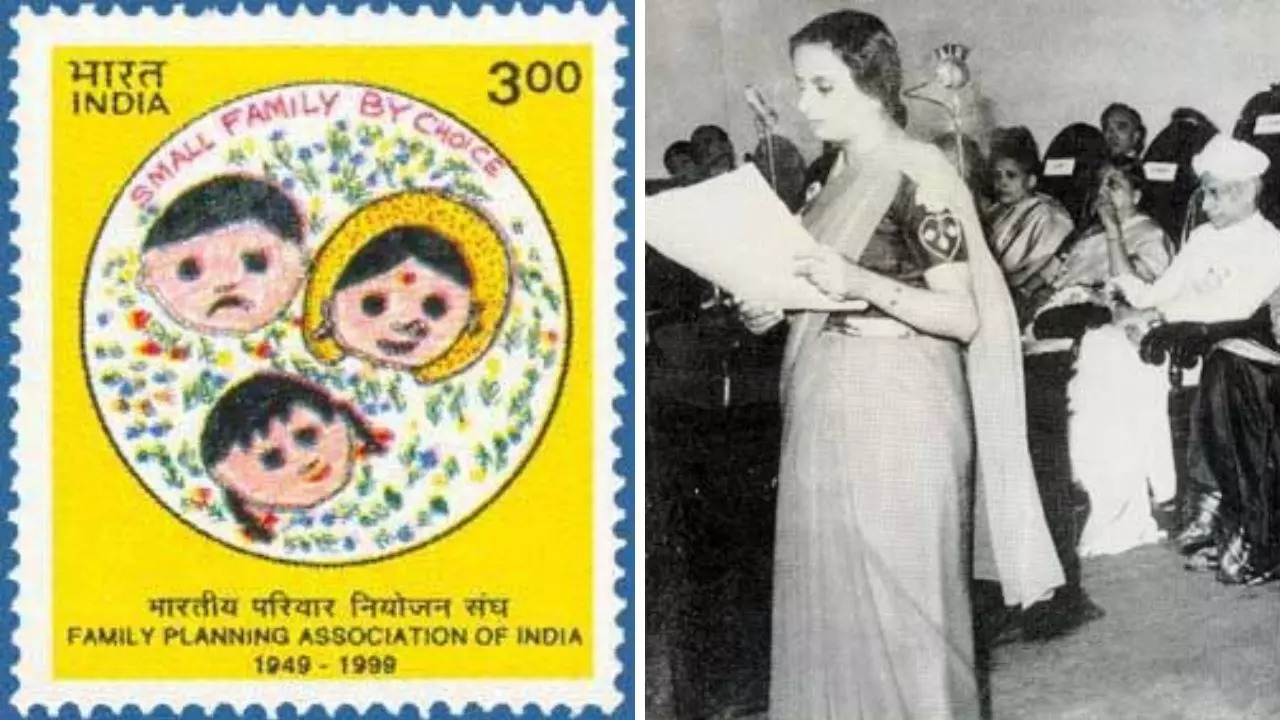(Left) Seal of the Family Planning Association of India on its 50th anniversary, 1999; (right) Avabai Bomanji Wadia speaking at the Third International Conference, 1952. (Photos: Wikimedia Commons)
“The first time I heard the words ‘birth control“I felt disgusted,” he wrote. Avabai Bomanji Wadia (1913–2005) in his autobiography, The light is oursHowever, when she heard a doctor in Bombay (now Mumbai) say that “Indian women oscillated between pregnancy and breastfeeding until death put an end to this sad story,” she was moved and wanted to make a change in their lives.
She decided to take up the cause of improving the lives of Indian women and became an icon who led the way in sexual and reproductive health and family planning motion.
Avabai was born into a Parsi family in Ceylon (now Sri Lanka). At the age of 19, she became the first Ceylon woman to pass the bar exam in England, having been admitted to the English Bar in 1932. At that time, it was not easy for a woman to gain admission to a law firm, and she faced many rejections.
During this period, Avabai was actively involved in groups fighting for women’s rights. She was also a member of the British Commonwealth League and the International Alliance of Women, which gave her access to prominent personalities. She even met Indian freedom fighters such as Mahatma Gandhi, Muhammad Ali Jinnah and Jawaharlal Nehru when they visited England.
He returned to Ceylon in 1939, where he enrolled in the Supreme Court. His father decided to return to Ceylon. India After his retirement, they settled in Bombay (now Mumbai) in 1941.
She got married Bomanji Khurshedji Districtto In 1946, Avabai began doing voluntary work for groups such as the Women’s Political Union and the All India Women’s Conference.
She became interested in reproductive health and rights after meeting family planning advocates during her volunteer work. She emerged as a leading figure in establishing the Family Planning Association of India (FPAI) in 1949 and served as its president for 34 years. The organization promotes reproductive options, legal and safe abortion, education about sexually transmitted diseases, and sexual and reproductive health.
“FPA India was instrumental in promoting the introduction of family planning in the country’s first Five Year Plan (1952). Thus, India became the first country in the world to have a family planning programme,” she said. Indian Business Association.
Inspired by the success of South Korea’s mothers’ clubs, which boosted widespread acceptance of family planning in rural areas, she organized close-knit groups where women could discuss pressing social issues ranging from dowry to female underrepresentation in politics, Parinaz Madan and Dinyar Patel write for the website. BBCAvabai has written extensively on sexual health and family planning issues.
Disclaimer:
The information contained in this post is for general information purposes only. We make no representations or warranties of any kind, express or implied, about the completeness, accuracy, reliability, suitability or availability with respect to the website or the information, products, services, or related graphics contained on the post for any purpose.
We respect the intellectual property rights of content creators. If you are the owner of any material featured on our website and have concerns about its use, please contact us. We are committed to addressing any copyright issues promptly and will remove any material within 2 days of receiving a request from the rightful owner.

